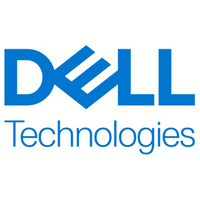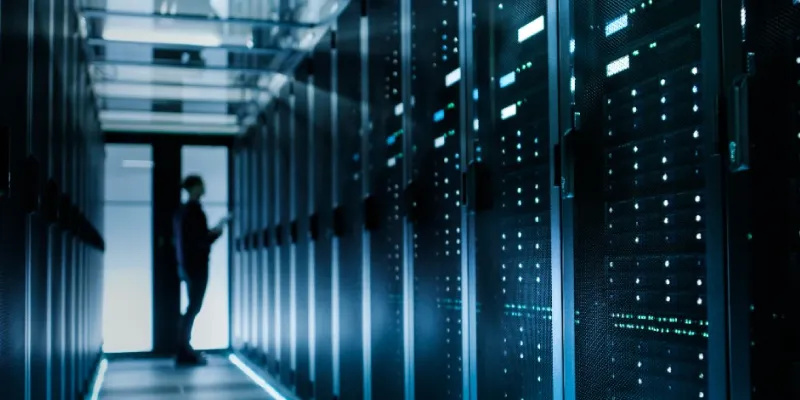
Dell Technologies
View Brand PublisherData is the new water and AI is helping organisations ride the wave
As of June 2019, there were over 4.4 billion internet users in the world. This statistic represents an 83% percent increase in the number of people using the Internet in just five years! Right now, over 5 quintillion bytes of data are generated in a single day (that’s 5 followed by 18 zeros). Simply put, there’s an ocean of data out there, and AI is our best bet to analyze, understand, and innovate with it.

It’s no surprise, therefore, that when it comes to the tech landscape across the world, AI and its affiliated technologies are taking center stage in growth and innovation conversations. AI & ML are improving the ability of computers to improve human lives more than any other technology. Big Data, analytics and IoT have all merged and evolved with AI and ML, driving human progress in healthcare, education, agriculture; everything around us.
AI is helping us solve problems far more efficiently and accurately than was previously possible with traditional programming techniques. AI is transforming science and businesses around the world – from cancer research to virtual assistants to autonomous vehicles. Initially led by universities, social media, e-commerce, and search service providers, due to the availability of data, the affordability of computing and the maturity of the algorithms and models, the use cases for AI technologies are now expanding into enterprises and governments.
Yet, while most enterprises intend to harness the technology, many aren’t sure where to begin, what data they need, or what infrastructure solutions and technologies will be required. Consequently, many organizations face daunting challenges as they consider launching AI initiatives. Selecting projects with attractive risk or reward ratios, preparing and possibly acquiring the required data sets, and mastering new technologies all require hard-to-find expertise.
AI today continues to find innovative applications through social media intelligent modelling, biomedical algorithms, emotion recognition, pattern recognition, intelligent security modelling, autonomous vehicles, brain-inspired modelling, deep learning and machine vision to name a few. We at Dell are looking to help organizations spanning the enterprise, small business, and the public sector develop and run AI applications, regardless of the organization’s level of expertise.
Data literacy to combating unconscious bias
We believe that data literacy can help correct unconscious bias. In the future, new human-machine partnerships will enable us to surpass our limitations and rid the workplace of age-old inefficiencies and inequities. The steps we are taking today, including modernizing infrastructure, refining algorithms for bias, inspiring employees and deploying software, will lay the groundwork for the digital future and the next wave of technology-led human progress. AI technology is gaining momentum in the recruitment field and is beginning to tackle some of the decisions that result in our unconscious bias. In fact, intelligent tools are popping up around the world to hire a more representative workforce.
In the future, AI fluency will also not necessarily mean knowing coding languages. While a machine catalogues facts and figures faster and more comprehensively than any human, we believe that understanding the context those facts fit within is something humans will likely remain uniquely capable of in the foreseeable future.
We also believe in the democracy of data and that data should be decentralized and accessible. More so, we believe that as technology continues to make itself ubiquitous, everyone in the value chain should be empowered with data analytics skills in some form or another to break silos, improve agility and have a sense of ownership of the process.
Dell Technologies and The Future of Work in India
A recent Future of Work report by Dell Technologies and California-based think-tank Institute for the Future looked at the interplay of advanced technologies like AI, extended reality IoT, and how it will affect people to prepare for and find work. The report highlights three shifts in the future work environment. The predicted shifts mainly deal with fairer recruitment processes, the empowerment of workers as a result of the adoption of advanced technology and increased utilization of AI by employees.
The report found that 91% of business leaders based in India plan to harness emerging technologies to improve the productivity of employees and 74% are in favor of humans working with machines. About 86% of Indian business leaders expect to remove human biases finding their way into decision-making algorithms and almost just as many believe all of its employees will need to acquire expertise in technology by 2030, the report said. An important shift, the report revealed would be greater AI fluency among employees, which would mean that human effort will be supplemented with inputs from emerging tech.
Interested in exploring a career with Dell technologies? Click here.
The future of learning
The future of work is also inextricably linked to the future of learning. How we educate our youth translates into their preparedness as they enter the workforce. And how we retrain and upskill our existing workforce allows them to stay relevant in a changing work environment. The learning, retraining and upskilling over the next decade will include improving everyone’s knowledge of and capabilities in AI. And this won’t necessarily mean teaching coding or even broader technical skills. In a new world of work, learning to effectively judge what machines can and cannot do, as well as what they should and should not do, will be a critical capability for workers in the future. In return, human strengths and capabilities will need to be integrated into AI systems to help workers partner more collaboratively with them. Classifying the strengths and capabilities of both humans and machines will be a core aspect of having a strong command of AI systems in the future.
India and the analytics landscape
When it comes to the tech skilling landscape, data analysis is taking center stage in India’s growth story as AI, ML, IoT, Deep Science and related technologies lead the potential for future innovation and growth. With nearly 97,000 vacancies, India is the second-biggest analytics jobs hub after the US, a recent feature by the Economic Times revealed. The figure is poised to more than double to two lakhs by 2020. India now also accounts for one in 10 advanced analytics job openings in the world. If ever there was a gold rush for data scientist jobs, India would be at the heart of it.
Skill demand is also a signpost for how the industry is transforming or innovating. Understanding it can help us make decisions and take actions to ensure that our businesses stay competitive in the market. At Dell, we have a slew of initiatives to help our talent and collaborators stay future-ready. The India Innovation Forum is one such initiative to showcase innovations that create value for customers, community, company, and employees from across the company’s India locations.
A number of initiatives in play help us empower team members to create, collaborate and make an overall difference. These include the AI Academy, which seeks to foster better collaboration, through integrated training, R&D, live projects, hackathons and ideation on all things related to AI and ML. We’ve initiated a crowdsourcing development platform called Crossroads, Hack is our unified platform for all hackathons and i2I is our platform for process and service improvements and incubation ideas. Apart from these, we have a Patent Assistance Board for mentoring new Innovation Champions. Sparks & Ignite - a tech platform for talks and workshops by senior engineers on technology, and finally ProgMan - a cross-collaboration group for engineers.
Going from AI-possible to AI-first
While today’s emerging technology promises a bright future, there will undoubtedly be challenges to overcome if we are to realize their full potential. Concerns around the fairness of algorithms must be addressed, as will issues relating to privacy, security and ownership, and how governments and organizations collect and share data. We at Dell are already working to tackle these issues.
Dell Technologies offers what we believe is the industry’s richest portfolio of products and solutions for AI deployment, IoT, storage, workstations, supercomputers, servers, plus access to AI Customer Solution Centers and AI Innovation Labs. And as the wave of data builds, we at Dell are happy to be your companions on the journey to a better future.
Read more about how Dell Technologies is shaping the future here.







